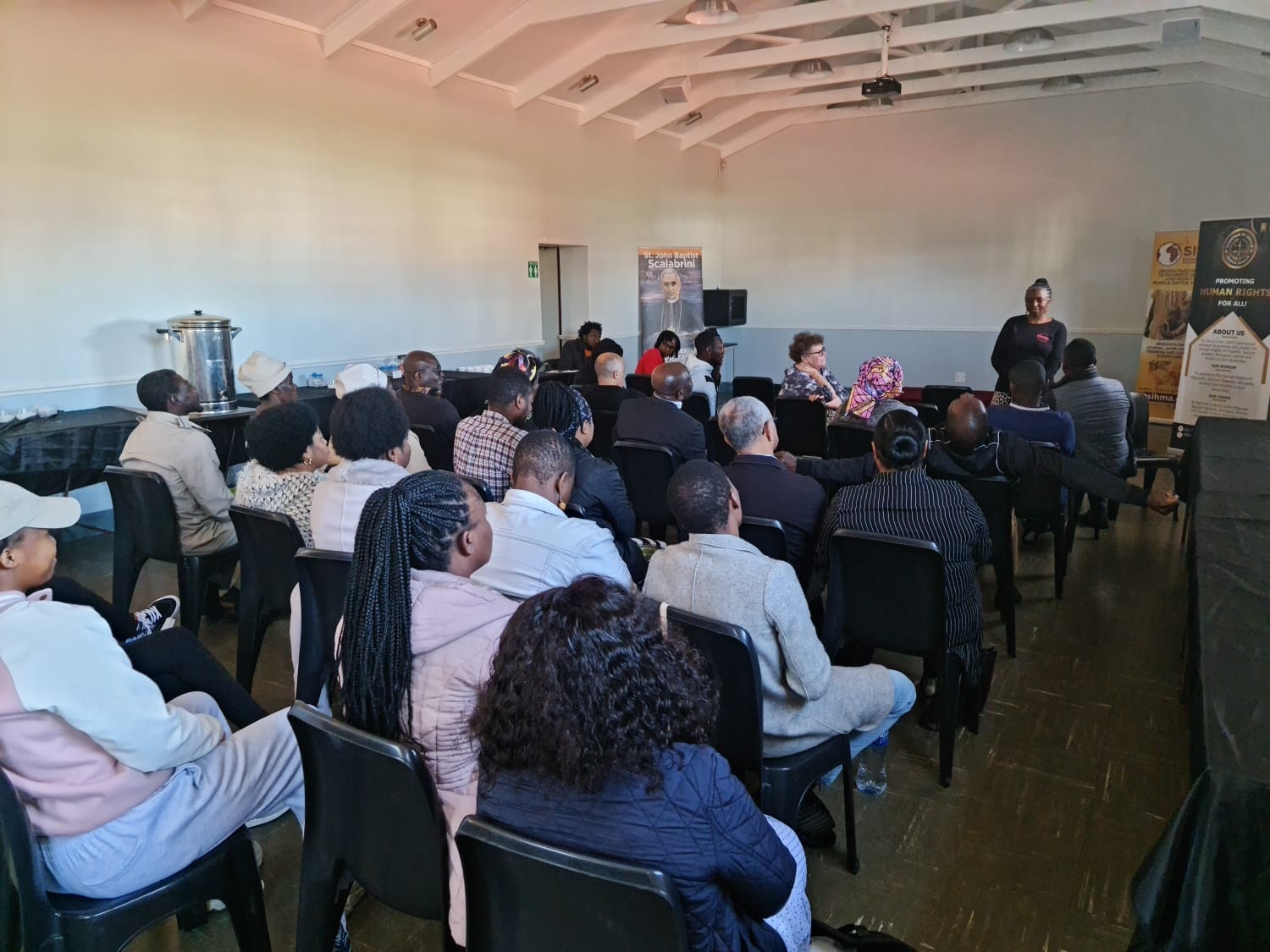
“Stay Up” Film Screening Event Reflection
Prepared by Rachel Chinyakata
On Sunday the 14th of May, the Scalabrini Institute for Human Mobility in Africa (SIHMA) in partnership with the St Johns Catholic Parish in Maitland hosted a film screening event for migrants and refugees in Maitland. The film is titled, “Stay Up”, which is a production from STEPS South Africa’s Generation Africa project which features 25 medium and short films of the lived realities of African youth, through the lens of migration across 16 Anglophone and Francophone countries in Africa. The film “Stay Up” features a story on Miriam, a survivor of childhood sexual abuse in Mali who escaped to Burkina Faso to build a new life. She uses dance and choreography to heal from the trauma and to confront her fears.
The event was directed by Muluh, a researcher from SIHMA and began with welcoming remarks from Fr Zane Priest at the ST Johns Parish, introductions, and the purpose of the event lead by Rachel, a researcher from SIHMA. Following this was the screening of the film facilitated by the SIHMA director Fr Filippo. After the movie screening followed the reflection from the screening by all the people in attendance. Elaine Maane from STEPS facilitated the discussion. The main purpose of the screening this film was to reflect on issues of trauma, resilience and healing experienced by migrants as indicated in the documentary. Most importantly, reflecting based on the context or the environment that the attendees are living in or surrounded by.
During the reflections the attendees indicated that the film portrays one’s ability to heal or being able to bounce back after facing trauma by concentrating on strengths or on positive areas. From the film, Miriam moved from Mali to Burkina Faso fleeing the abuse she was facing. In relation to this, attendees pointed out that many refugees relate to this forced movement and trauma associated because of their experiences. Trauma was highlighted to be common among migrants and refugees coming in many forms and shapes. The film triggered some thoughts around multiple social issues that are being faced by the society including traumatic events and how people are forced not to step out or open up to these issues due to different reasons. For example, fear, discrimination, and stigma which blocks some people from stepping out and healing from the traumatic experiences. Fear of stepping out was indicated to be worse when the person who has triggered the trauma is a relative or an influential figure in the society. In the case of Miriam, abuse was experienced from the people close to her, which was indicated by the attendees to be common phenomenon in the communities that they live. Language barriers were also indicated to be one of the factors hindering refugees from opening their issues to other people. Furthermore, during the discussion the attendees noted that sometimes victims are left with no one to turn to because the authorities where they are supposed to report these crimes to sometimes abuse them.
The attendees of the event mentioned that even if you are trying to find yourself, responsibilities will still come. For example, in the film, Miriam was expected to send money home to support her family although she was experiencing challenges. From this, the attendees indicated that as a migrant or refugee one has to be open about the challenges, they are facing to be able to deal with expectations. Resilience was also noted as an aspect that one must define for themselves, one has to determine what their goals are in order to work towards that in order to overcome adversity. This was supported by the story of Miriam, had to imagine her future/have a vision, and this gave her strength to work hard to achieve her dreams even in the face of adversity.
From the film, the attendees also noted that some of the traumatic experiences can impact one’s physical well-being, therefore you need to be cognisant of both your physical and mental well-being to adequately heal. One of the attendees pointed out that, “you body does not lie”, indicating the connection between the body and experiences. Therefore, one needs to constantly work on overcoming emotions and feelings related to some experiences to heal holistically.
Furthermore, from the discussion it was reiterated that support structures for people who have experienced trauma in Africa are limited or non-existent unlike in some contexts. People do not know where to turn to for help and many at times these topics are ignored, or people are not comfortable talking about it as nothing is happening. For example, one of the priests in attendance highlighted that focus is seldom on some of topics like rape but exist in the society. This led to the recognition that the church needs to create a platform to discuss different issues that are being faced in the society.
To comprehensively address trauma, the attendees indicated that there is need to discuss about the real contributors, which many people rarely focus on. For example, the high rates of abuse, the attendees mentioned that there is need to deal with the root causes. In concluding the event, SIHMA shared some psychosocial services that migrants and refugees can use to deal with trauma and other psychosocial issues. The attendees also commented on the importance of activities such as this one in raising awareness on trauma and ways to deal with it.
Categories:
Tags:

